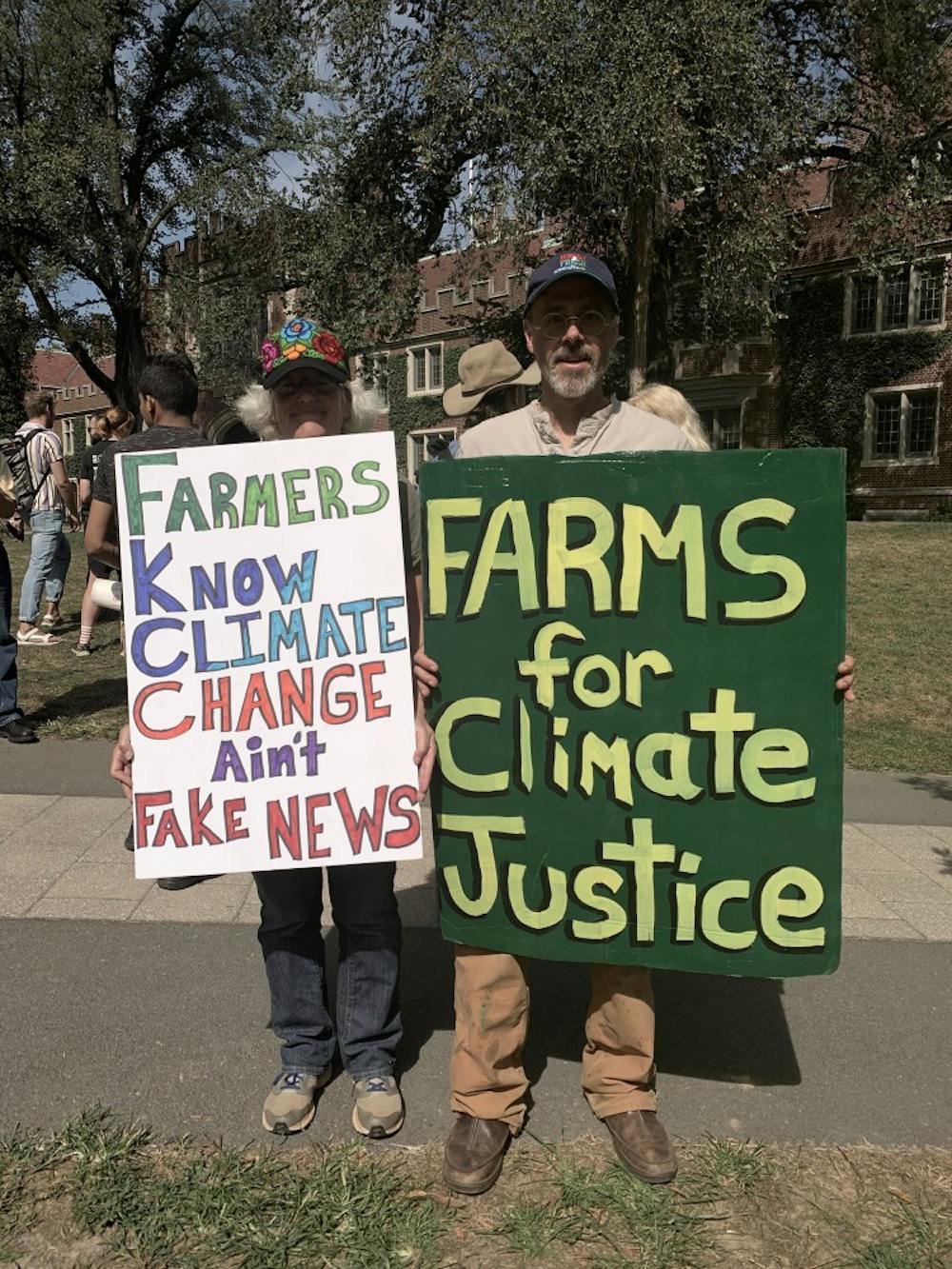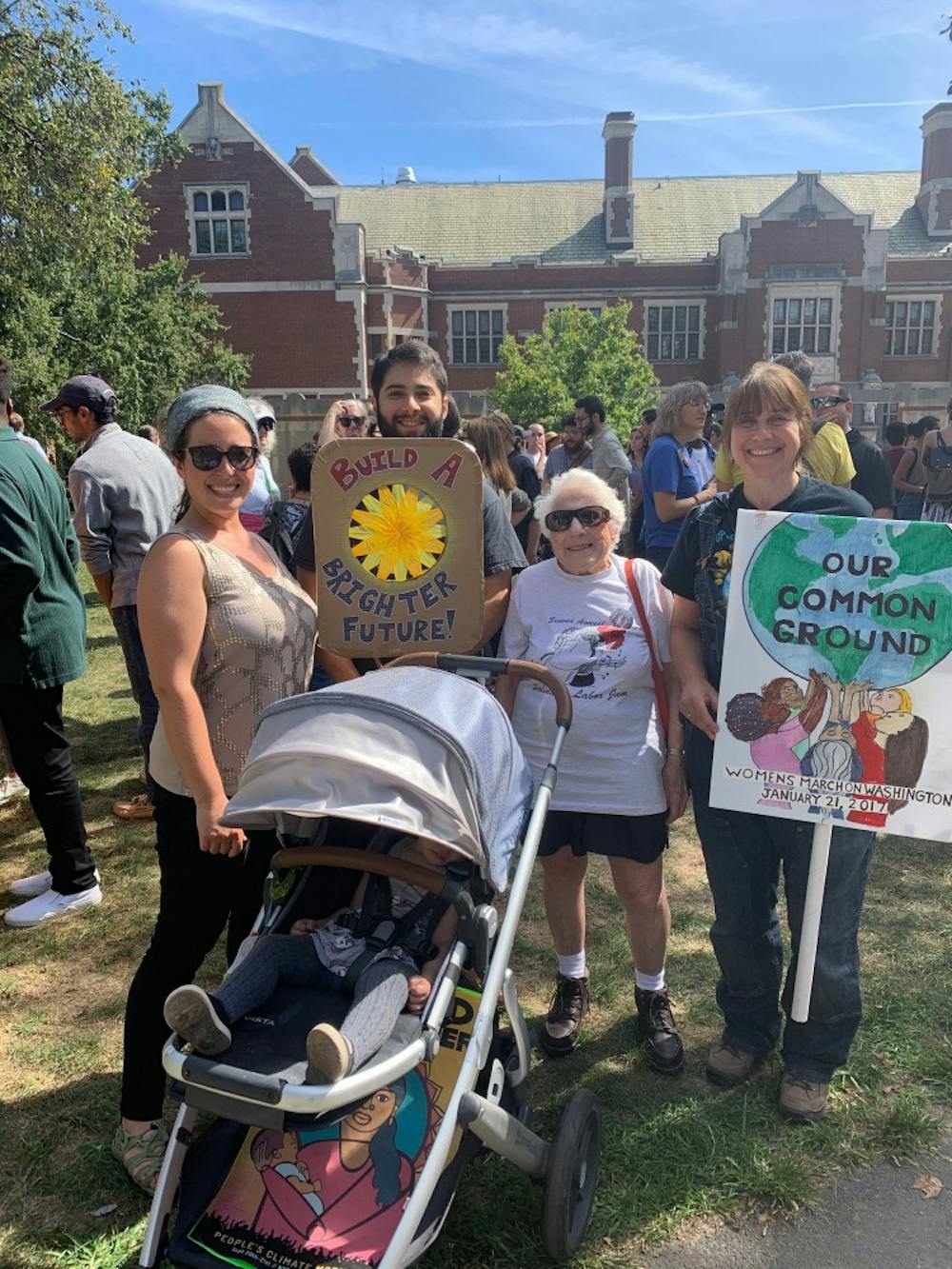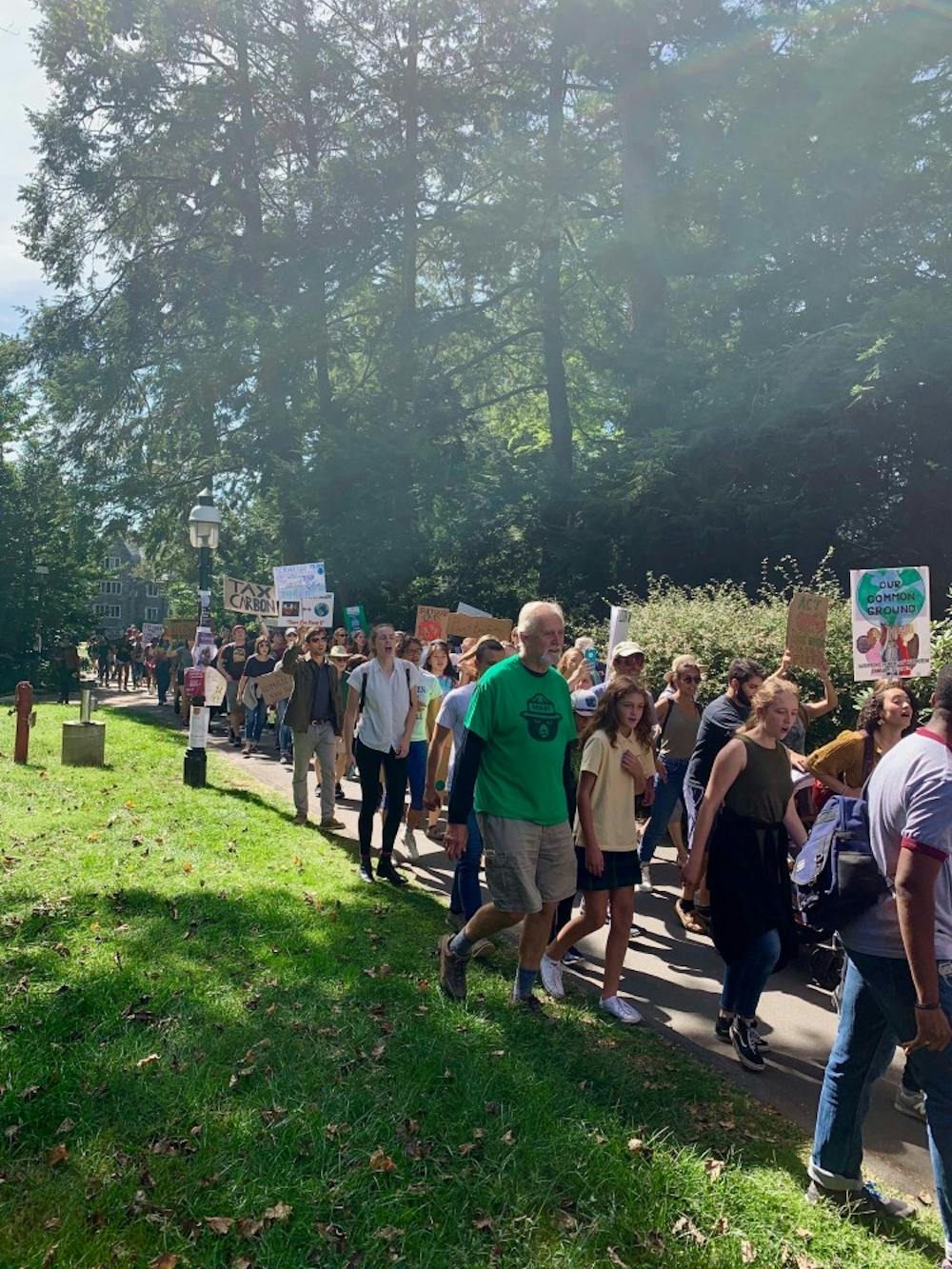Last Friday, over six hundred demonstrators took part in the Princeton Climate Strike, gathering in front of the Princeton Public Library before marching onto campus and finishing their protest in front of Frist Campus Center.
The demonstrators joined the approximately four million other people who participated in hundreds of Climate Strike events around the world. From Princeton to New Delhi, Berlin to Antarctica, protesters marched to raise awareness of the climate crisis before the United Nations Climate Action Summit, which begins today.
Speakers addressed a wide range of topics related to the climate crisis, including the massive environmental impact of the U.S. military, the feasibility of the Green New Deal, and the Trump administration’s removal of climate science information from government websites.

The global Climate Strike, inspired by 16-year-old Swedish activist Greta Thunberg, was fueled by young people afraid of what climate change means for their futures.
“I’m scared and I want people to understand why,” said Zahra Lohoue, a local ninth-grader who has led multiple climate change strikes at her school.
“I do not want hurricanes to be the end of us, I do not want wildfires to be the end of us, I do not want pollution to be the end of us, I do not want global warming to be the end of us,” she continued.
Lohoue ended her speech by calling upon the protestors to take action, and left the stage to huge applause.
Members of Ellipses, the University’s oldest spoken word group, performed “Not to Breathe,” a poem emphasizing young people’s anxiety about climate change and frustration with the lack of action by those in power.
“When the world ends, it will be legal,” they recited. “The world is ending, we are ending it.”
Parents who marched cited concern for their children’s futures as their primary motivation for joining the climate strike.

Devin Carsdale, who works as a sustainability compliance auditor for Ikea, shared his concerns.
Holding his six-month-old daughter, Ava, Carsdale said he is “super-passionate about sustainability,” and worries about what kind of world his daughter will grow up in.
“I’ve been able to enjoy this world for the last thirty years,” he explained. “I want to make sure that she’s able to take advantage of those same luxuries of breathing clean air and drinking clean water, not having to worry about food scarcity, and we know that it’s going to increasingly become a problem in the years to come.”

Elena Reimero attended the demonstration in her stroller, accompanied by her mother, father, grandmother, and great-grandmother.
"We wake up thinking about what the future holds for her. Nothing could be more important," said her grandmother, Heidi Fichtenbaum.
University English professor Rob Nixon, who addressed the protestors, noted that environmental justice had become central to the movement, which increasingly focuses on low-income communities and communities of color, who are often the most impacted by climate change through droughts, pollution, flooding, and temperature fluctuations.
“I have never seen such a comprehensively international and diverse movement,” he said. “This is a movement led from below by the people who will be the most deeply affected by climate change, including the younger generation.”
In keeping with the increased presence of social justice within the environmental movement, the Princeton demonstration began with a land acknowledgement by Jessica Lambert ’22, an enrolled citizen of the Choctaw Nation and a first-generation descendant in the Eastern Band of Cherokee Indians, as well as president of Natives at Princeton. Lambert called on demonstrators to remember that the land on which they stood, as well as the rest of New Jersey, had originally been inhabited by the Delaware people, who were driven west to Ohio and Kansas and disenfranchised by broken treaties with the U.S. government.
Also present were members of the Eastern Service Workers Association, who represented the low-income workers often disproportionately burdened by extreme weather events, which are increasing in frequency and severity due to climate change.

The Eastern Service Workers Association at the Climate Strike.
Photo Credit: Rose Gilbert / The Daily Princetonian
In addition to calling attention to the destruction and urgency of the climate crisis, speakers at the Princeton demonstration called on the audience to demand change from their legislators, and to vote in elections.
Pranav Iyer ’22, who said he has relatives in India struggling to get access to drinkable water due to droughts, implored the crowd not to give in to “negligence and complicity,” and to hold their political leaders accountable.
“As citizens of this country we have an obligation of the people, by the people, and for the people,” he said.
Although he acknowledged the severity of the climate crisis, Iyer expressed hope that the American people, if not the American government, would be able to pull together to address climate change before it was too late.
“What happened to the country that said we do these things not because they are easy, but because they are hard?” he asked, provoking huge cheers from the crowd.
“Today our dream becomes a movement, not a moment.”








